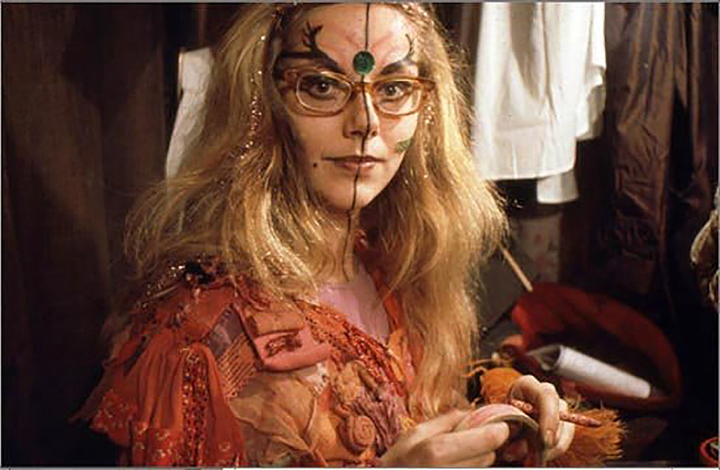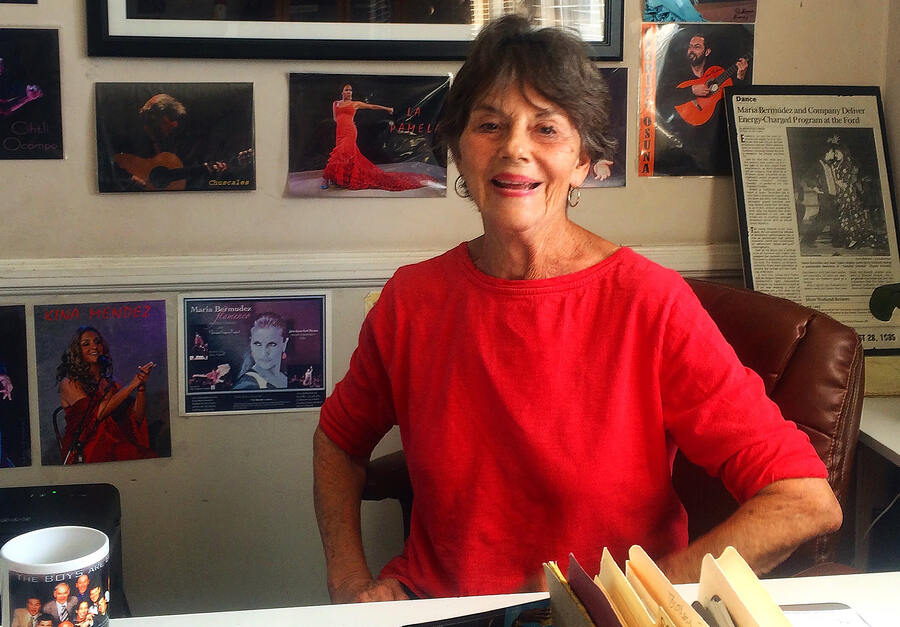Theatre and dance producer Deborah Lawlor died on May 2. She was 83.
The phone call came on Feb. 4, 1990. Deborah Lawlor had been in a serious car accident in upstate New York. She was calling to tell me that she swore a private oath to herself while in her hospital bed. “If I survive,” she had vowed, “I will start my own theatre company. Will you run it with me?”
I did not know Deborah well. She was an independent theatre producer in Los Angeles. I was working with Joan Stein and Suzie Dietz at the Canon Theatre in Beverly Hills. Deborah was about 50, lithesome; she moved like a dancer. When first speaking, she could seem dreamy, naïve, sometimes childlike—until her startling intelligence, her erudition on a potpourri of subjects, made it clear she was brighter than most in the room. Her inherited family wealth was a blessing and curse, causing her to fight all her life to be seen as an artist, not a lady with a checkbook. But her generosity could not be helped. She is the foremost example of using one’s privilege for the benefit of others.
We opened the doors of the Fountain Theatre in East Hollywood on April 1, 1990: April Fool’s Day, an appropriate marker to launch a nonprofit theatre company. Our artistic partnership lasted 33 years. Longer than most marriages.
Her loving hand touched every play we produced, and she created three works of her own. She was responsible for our dazzling flamenco program, producing hundreds of concerts at the Fountain and the Ford Amphitheatre. More than that, she fostered the Los Angeles flamenco community, highlighted in the passionate 2011 documentary film Kumpania. In 2013, she received special commendations from the city of Los Angeles and the Spanish Consulate for her contributions to the art of flamenco.
Deborah grew up in Riverside, Calif. After Bennington College, she moved to New York to join the Judson Church/Caffe Cino scene in the Village. In 1968, she pioneered Auroville, a 12-square-mile utopian international community created for human unity in India. It now holds 3,000 inhabitants from around the world.

She was also an author, translating the French philosopher and mystic R.A. Schwaller de Lubicz‘s work on sacred architecture in The Temple in Man (1977), Egyptology in Symbol and the Symbolic (1978), and esoteric philosophy in Nature Word (1982). This book’s theme was “the intelligence of the heart,” a life approach that describes my dear Deborah.
Deborah was a blessed, essential part of my family. She adored my children, loved my wife; she was with us for every occasion and holiday. She was among the most generous, heart-filled, joyous, vulnerable, supportive, fascinating, and wondrous persons I’ve known. She will be deeply missed. Yet she lives on: in Auroville, at the Fountain, in the hearts of those she touched, and the countless lives she changed.
Deborah Lawlor slipped away peacefully on May 2, without pain or distress—a blessing. She leaves this world a better place with her having lived in it; this is the blessing she bestows upon us. Deborah gave all of herself all her life, thinking of herself last, enriching and enhancing many lives. None more than mine. Besides my wife, children, and parents, this remarkable woman I hardly knew became the most consequential relationship of my life.
Her memory brings to my mind the final scenes of It’s a Wonderful Life. We are all George Bailey: We have dreams unrealized. We are stressed by daily life. We don’t fully appreciate what we have or what we’ve managed to accomplish. We focus on what serves ourselves, ignoring what really maters. We get caught up in achieving “great things” instead of appreciating the value of doing small things in a great way. Like Clarence in the movie, Deborah was a guardian angel. Her humanity, as Clarence points out to George, brings home this key truth: Each person’s life touches so many others.
Stephen Sachs (he/him) is artistic director of the Fountain Theatre.


